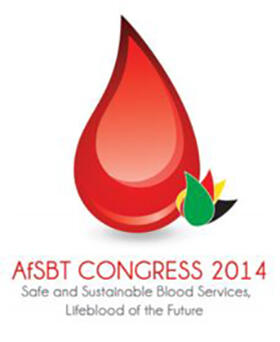
LSTM Professor Imelda Bates, the Principal Investigator of the T-REC consortium, facilitated the open session, which was attended by blood service staff, scientists, clinicians, commercial companies, students, and representatives from professional organisations, universities and Ministries of Health.
The purpose of this latest T-REC symposium was to pool ideas from a broad and diverse range of blood service stakeholders about the next steps to achieve this goal and to find out how the T-REC consortium could most effectively support the process. The symposium provided an opportunity to share experiences of conducting transfusion research in Africa and discuss challenges and potential solutions. It also allowed participants to propose ideas for strengthening the capacity of transfusion services to conduct and use research and to find out how T-REC could contribute further by convening a strategic meeting early in 2015.
Professor Banji Adewuyi, Editor-in-Chief of Africa Sanguine, gave a brief orientation for participants on the importance and role of research in improving blood services in Africa. For the rest of the symposium, participants worked in small groups of up to eight people to focus on issues such as the key challenges for blood services in conducting transfusion research; how to overcome these challenges; research impact on blood service policies and improving practices and how to strengthen the capacity of blood services through an Africa-wide programme.
A fuller report about the meeting is available here:
http://www.t-rec.eu/documents/T-REClunchtimesymposiumreportAug2014FINAL.pdf
About T-REC
To enhance transfusion research capacity the T-REC consortium funds four PhD students in Ghana and Zimbabwe, a one-year part-time Diploma Course for blood service professionals to undertake their own work-based research project, and student bursaries to support undergraduates’ transfusion research projects. T-REC also supports the development of the research infrastructure within the blood services and links between the blood services, AfSBT and African and EU universities.
T-REC’s African partners are AfSBT and the national blood services in Ghana and Zimbabwe; EU partners are theUniversity of Copenhagen/National Blood Service, Denmark and the University of Groningen, Netherlands. The Liverpool School of Tropical Medicine in the UK is responsible for coordination of the consortium.